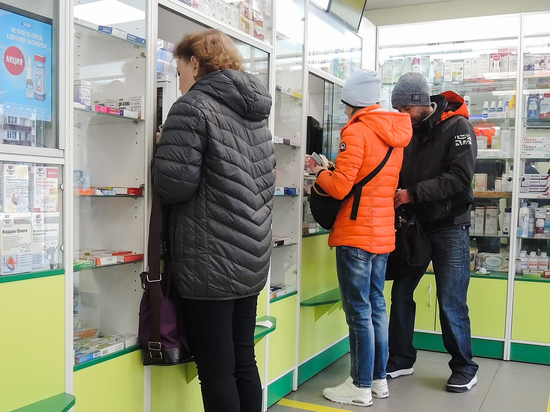Hawthorn tincture is expelled from the Russian market
[ad_1]

Fresh bills provide new restrictions on the sale of drugs with ethyl alcohol
The servants of the people decided to expand the field of combating the circulation of illegal alcohol in the country and turned their attention towards alcohol-containing drugs. The amendments to the laws “On Circulation of Medicines” and “On Licensing Certain Types of Activities” proposed by State Duma deputies and members of the Federation Council provide for new restrictions on the sale of drugs with ethyl alcohol. As a result, the old hit of pharmacy sales – hawthorn tincture – will become even less accessible.
Amendments are proposed to oblige manufacturers of preparations with ethanol to label them in the primary packaging. Until now, only boxes with vials inside have been labeled, and vials separately are not. They will limit the circle of those who have the right to sell medical alcohol (this will require a license for pharmaceutical or medical activities, the status of a medical organization or an accredited laboratory).
All this is done to ensure that alcohol-containing preparations do not become raw materials for the production of surrogates. According to the authors of the initiative, last year this practice became widespread, and the number of offers for the sale of such drugs in containers from 5 to 100 liters increased on the Internet. The volume of production of the pharmaceutical substance of ethanol in Russia in 2021 amounted to 4.1 million decaliters, and in January-November 2022 it increased to 6.2 million decaliters, that is, twice as much as the real needs, and this indirectly indicates that a huge amount of alcohol is “left”. According to the legislators, a large proportion of alcohol-containing preparations can be used to make surrogate alcohol. And the introduction of markings will cover this shop.
…The authorities have been concerned about the tightening of ethanol turnover for more than a year. For example, in 2019, wholesale drug suppliers were banned from selling medical alcohol and pharmaceutical substances of ethyl alcohol (previously they were allowed in containers of no more than 1 liter). According to one of the pharmacists, this measure led to the collapse of the supply of medical alcohol: “And he, by the way, is included in the list of vital drugs. We got out of that situation with difficulty. Apparently, after the new measures, it will become generally unprofitable to produce such drugs. After all, we will have to buy equipment for applying excise stamps. We are being pressed by unreasonable laws instead of being helped. If only to ban something, without thinking how it will turn out.
Some experts believe that the new measures will create problems for veterinary clinics and research centers, where alcohol is a popular consumable. In addition, the introduction of any new marking inevitably entails the cost of its application, which, of course, will affect prices. According to DSM Group, the price of ethanol-based drugs last year averaged 55.1 rubles, which is almost 25% more than the year before (43.6 rubles). Therefore, last year their sales in physical terms decreased by 13%, while Russians spent 11% more money on them. As Nikolai Bespalov, Development Director of the analytical company RNC Pharma, told MK, almost all of these drugs are bought by the population either for non-medical purposes, or they are so outdated that it would be better to get rid of them slowly: “Of course, after the introduction of new restrictions, prices for them will rise How much is hard to say. A few years ago, this would have saddened consumers of hawthorn tincture, but today the problem of pharmacy alcoholism, although not completely resolved, has lost its relevance due to the increased availability of alcohol. Even if these drugs disappear altogether, there will be no trouble. Many of them are generally ineffective. If instead of valerian in the form of drops, people are sold it in the form of tablets, they will not suffer.”
This is confirmed by Elena Gladkova from the Samara Regional Pharmaceutical Association: “There are not so many people who buy hawthorn tincture for medical purposes. It has become expensive for other consumers of such products to buy it in pharmacies: it is easier to buy a check, which costs other money in terms of a liter of alcohol. So today the misuse of pharmacy tinctures is unpopular, the culture of consumption has changed.” The expert hopes that the new amendments will not affect production pharmacies that today work with ethyl alcohol: “In production departments, the turnover of alcohol is already small, until 2010 it was much higher,” Gladkova notes.
Meanwhile, Nikolai Bespalov is not sure that the new measures will put up significant barriers to the illegal circulation of alcohol: “The marking will not greatly improve the traceability of the movement of ethanol. Besides, I think illegal alcohol flows through other channels. I typed in “buy alcohol” in the search engine and went to hundreds of sites with alcohol of any quality, from medical to elite varieties of food, in volumes from 5 liters to infinity – and this is clearly not from the pharmaceutical market. Therefore, the deputies pretend that they are doing something and put things in order where it has already been put in place.”
Newspaper headline:
Be healthy boyars
[ad_2]
Source link






